Best Omega-3 Supplements In Malaysia – Fish Oil And Vegetarian
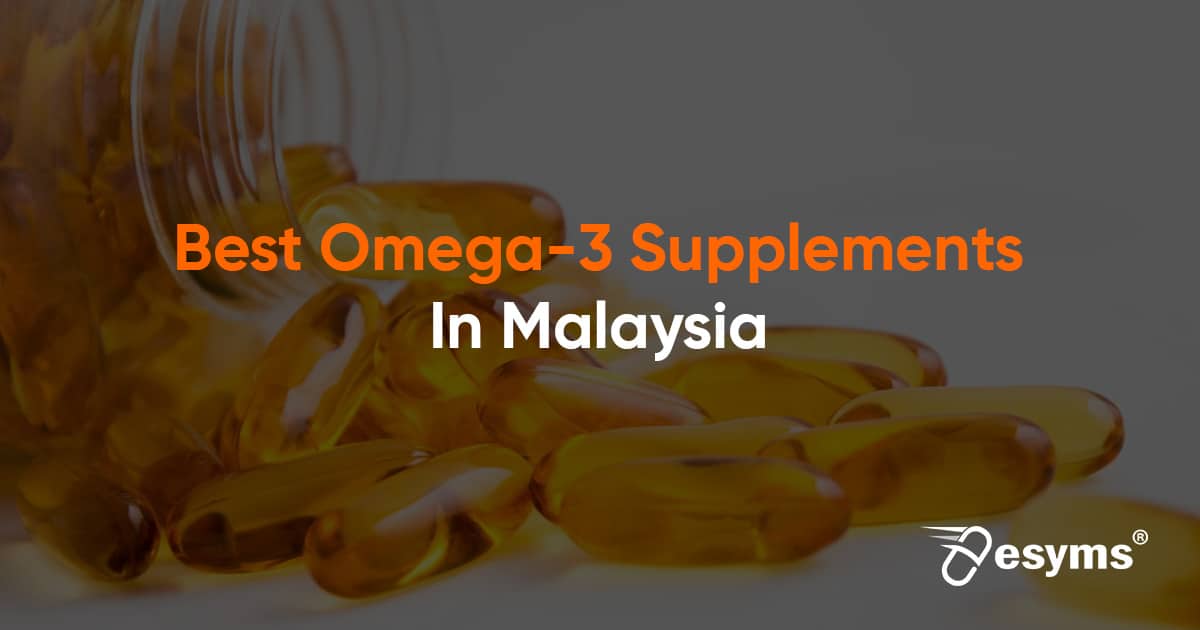
- Esyms Team
- September 30, 2020
- 5:31 am
- No Comments
SHARE THIS ARTICLE
BROWSE OUR GUIDE
What is Omega-3?
Omega 3 is a family of essential fatty acids that are solely obtained from your daily diet because our bodies cannot produce them on their own. The three main types of Omega 3 are ALA (alpha-linolenic acid), DHA (docosahexaenoic acid), and EPA (eicosapentaenoic acid). The main source of ALA is primarily from plants while DHA and EPA can be found in animals and algae.
Omega-3, Omega-6, and Omega-9 Fatty Acids: What's the Difference?
First of all, let’s talk about how the different Omega fatty acids are obtained. Omega 3 and Omega 6 are essential fatty acids that are needed by our bodies but cannot be produced naturally. However, our body is able to produce omega 9 fatty acids on its own.
In terms of its structure, Omega 3 and omega 6 fatty acids are polyunsaturated fats while omega 9 fatty acid is monounsaturated.
You can typically obtain Omega 3 from fish and seafood. Omega 6 can be found abundantly in cereals, vegetable oils, dairy products, eggs, meats, fast food, and pastries. Omega 6 is important for organ functions. On the other hand, Omega 9, which can be found mainly in olive oil, plant oils, nuts, and needs, is needed for normal cell function.
Since the intake of omega 6 is generally higher if compared to Omega 3 and our body can produce their own omega 9, most of the people are deficient in omega 3 fatty acids.
Functions and Benefits Of Omega-3
Omega-3 has well-known benefits for heart health. It can help lower blood pressure, triglyceride levels, and the development of plaque. Research shows that it lowers the risk of abnormal heart rhythm, heart attack and stroke, as well as decreases the chance of cardiac death among cardiac disease patients.[1]
Other benefits include improving specific mental diseases symptoms and aiding weight loss. Omega-3 is also beneficial for eye health, especially eye problems that are caused by aging problems such as age-related macular degeneration (AMD). [2]
Furthermore, omega-3 is effective in improving chronic inflammation caused by obesity, diabetes, depression and heart disease as well as treating inflammatory diseases such as rheumatoid arthritis. It is a known fact that omega-3, especially DHA, is important for infant’s brain growth and development so it is recommended for pregnant and breastfeeding women. Lastly, omega-3 is effective in reducing fat in the liver as well as relieving symptoms of non-alcoholic fatty liver disease.
What Are Omega-3 Natural Food Sources?
Natural foods that are rich in omega 3 fatty acids include salmon, mackerel, tuna, herring and sardines. For people who do not take much of these foods or are vegetarian, an omega 3 supplement is often recommended.
What Are Omega-3 Plant-Based Food Sources?
Omega 3 fatty acids can also be found in plants such as plant oil (flaxseed oil, soybean oil, and canola oil), nuts, and seeds (flaxseed, chia seeds, and walnuts).
Best Omega-3 Supplements in Malaysia
Esyms has partnered with the largest network of independent pharmacies in Malaysia. Through our extensive network and knowledge of pharmacy products in Malaysia, we’ve curated the list of the Best Omega-3 Supplements in Malaysia.
1) Barleans Omega-3 Fish Oil
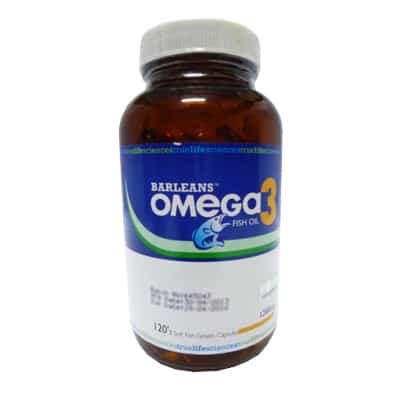
Barlean’s Omega 3 Fish Oil is sourced from ultra-purified, pharmaceutical-grade fish oil that comes with EPA 360mg, DHA 240mg, and other Omega 3 fatty acids 80mg in each soft gels. It is free of mercury and other heavy metals. Two soft gels are recommended per serving.
2) Vitahealth Omega 3, 6, 9
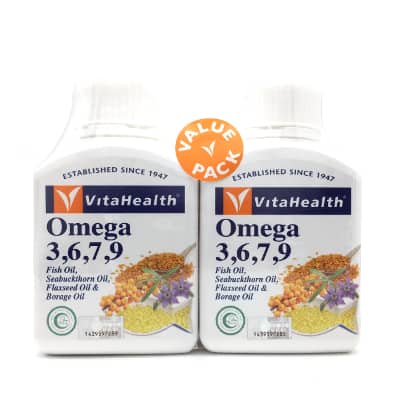
Vitahealth Omega 3, 6, 9 contains flaxseed oil that is equivalent to ALA 575mg, linoleic acid 175mg, or oleic acid 175mg. It is extracted from the plant-based source so it is recommended for vegetarians who need omega 3 supplements without taking fish oil.
3) Kordel’s Omega-3
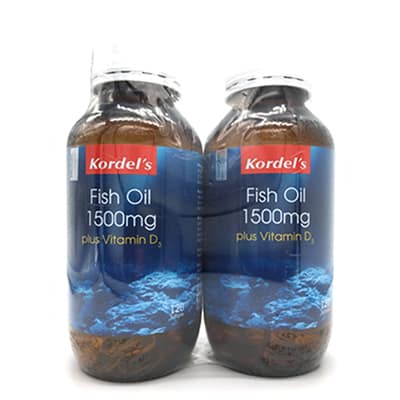
Kordel’s Omega 3 contains 180mg EPA and 120mg DHA that are extracted from cold-water fish such as anchovies and sardines. This product improves heart health, relieves rheumatoid arthritis and osteoarthritis symptoms, optimizes brain function, as well as promotes eye development.
4) Appeton Essentials Fish Oil with Omega
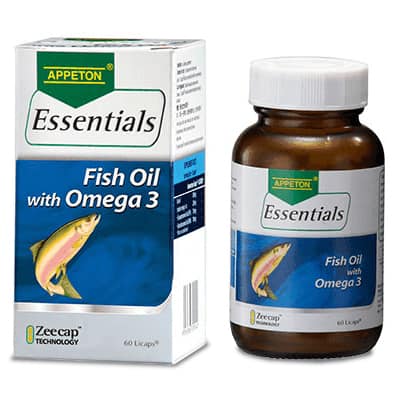
Appeton Essentials Fish Oil with Omega is derived from natural sources such as Pacific sardine and anchovies that include 150mg EPA and 100mg DHA. The gelatine layer of the capsule is made from pharmaceutical grade bovine gelatine that is halal and alcohol-free.
5) Nutrigo Omega-3 Fish Oil
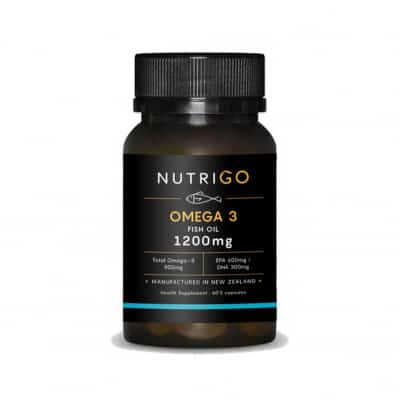
Nutrigo Omega-3 Fish Oil contains 600mg EPA and 300mg DHA in each soft gel. It helps to support heart health, maintain normal eye and brain function, decrease cholesterol in the blood, reduce inflammation and joint swelling associated with arthritis.
6) Blackmores Fish Oil
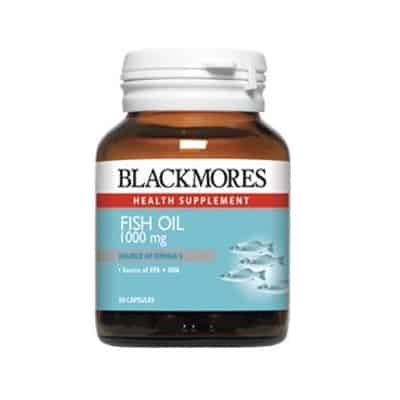
Blackmores Fish Oil is extracted from high-quality wild-caught small fish that provides 300mg of omega 3 which is equivalent to EPA 180mg and DHA 120mg in each capsule. The extraction process ensures purified, high-quality oil that is tested free of mercury, dioxins, and PCBs.
7) Scott’s Cod Liver Oil
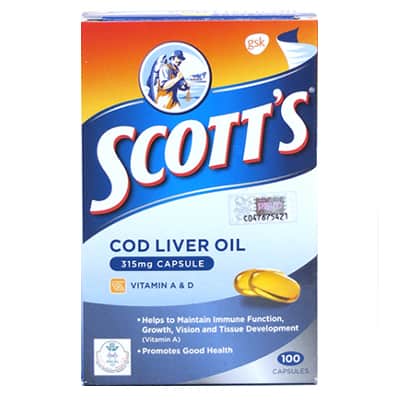
Scott’s Cod Liver Oil is rich in natural Vitamin A, Vitamin D, omega 3 fatty acids, EPA, and DHA. Omega 3 fatty acids, EPA and DHA can improve heart performance while vitamin A and D maintain healthy tissue and encourage strong bones and teeth.
8) Udo’s Oil 3.6.9 Blend
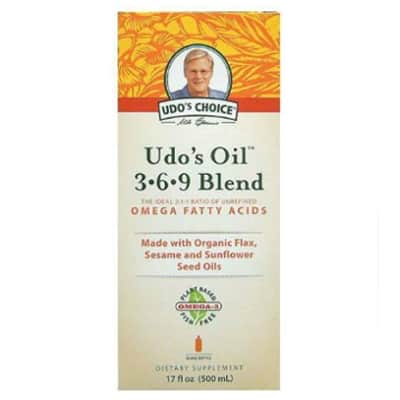
Udo’s Oil 3, 6, 9 Blend is a foundation oil that is designed to provide the ideal 2:1 ratio of omega 3 and omega 6 fatty acids. Omega-3 and Omega-6 fatty acids. It is extracted from fresh organic plant sources, including flax, sunflower, sesame, evening primrose, coconut, oat, and rice brain. It is perfect for vegetarians and vegans for those looking for a vegetarian source of Omega 3.
Frequently Asked Questions About Omega-3
Here are the commonly asked questions about Omega-3, fish oils and supplements.
Does Omega-3 have any side effects?
The side effects of omega 3 include stomach upset, loose stools, and nausea. Adequate intake of Omega-3 is 1.6g and 1.1g for adult males and females respectively. Excessive intake of Omega-3 has been shown to increase the risk of bleeding. Omega 3 supplements are made of common food allergen sources such as fish, nuts, and more. So those who have allergies should check the ingredient list before purchasing any product.
Should I take Omega-3 supplements before or after meals?
It is recommended to take Omega-3 supplements with food to maximize absorption in the body.
How should I store Omega-3 supplements?
Omega 3 supplements should be stored in a low-light, controlled temperature environment in an air-tight bottle to maintain optimum freshness and provide maximum nutritional value.
What is the dose for Omega-3 supplements?
The dosage required for each product is different. Always follow the direction as shown on the packaging and labels.
Are Omega-3 supplements vegetarian-friendly?
Make sure to check the ingredient list on labeling before buying. The majority of the omega 3 supplements available in the market are animal-based but some of them are extracted from plant sources.
Are Omega-3 supplements halal?
It is recommended to check with the pharmacy or local health authority to see if the product has halal certification before purchasing.
References
- Shacky C, Harris WS. Cardiovascular Benefits of Omega-3 Fatty Acids. Cardiovascular Research. 2007 Jan; 72 (2): 310-315. Available from: ttps://academic.oup.com/cardiovascres/article/73/2/310/486707
- Seddon JM, Cote J, Rosner B. Progression of Age-related Macular Degeneration: Association with Dietary Fat, Transunsaturated Fat, Nuts, Fish Intake. Arch Ophthalmol. 2003 Dec; 121(12): 1728-37. Available from: https://pubmed.ncbi.nlm.nih.gov/14662593/
- Institute of Medicine, Food and Nutrition Board. Dietary reference intakes for energy, carbohydrate, fiber, fat, fatty acids, cholesterol, protein, and amino acids (macronutrients). Washington, DC: National Academy Press; 2005.
